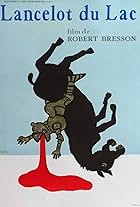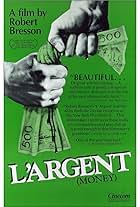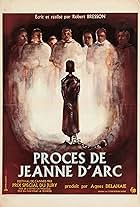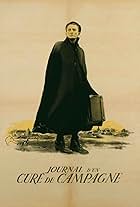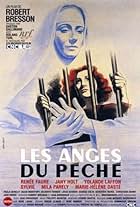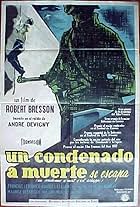PUNTUACIÓN EN IMDb
7,1/10
5,1 mil
TU PUNTUACIÓN
Charles navega a través de la política, la religión y el psicoanálisis, rechazándolos a todos. Una vez que se da cuenta de la profundidad de su disgusto por el declive moral de la sociedad, ... Leer todoCharles navega a través de la política, la religión y el psicoanálisis, rechazándolos a todos. Una vez que se da cuenta de la profundidad de su disgusto por el declive moral de la sociedad, decide que el suicidio es la única opción.Charles navega a través de la política, la religión y el psicoanálisis, rechazándolos a todos. Una vez que se da cuenta de la profundidad de su disgusto por el declive moral de la sociedad, decide que el suicidio es la única opción.
- Dirección
- Guión
- Reparto principal
- Premios
- 3 premios y 1 nominación en total
Marie Rivière
- Student
- (sin acreditar)
Reseñas destacadas
But Bresson is not so simple-minded as to agree with his hero, even though the choice of honorable suicide is certainly heroic (I recall Sophocles' Ajax, whose motives were very similar). No person past a certain degree of spirtual advancement can take others' ideas and suffering at face value and simply side with them or against them, lay out the arguments or counter them one by one like in a game of cards. It is impossible to "argue" any real case, to lift a word from another reviewer here. One simply knows how things are, and beyond the facts faith, stubborn love of life begin. Bresson is dogmatic as someone who has lived and experienced enough and is not going to bother picking small fights with fools. Yet he is also sympathetic - always. He is kind. He shows everywhere great pity for Charles, all the way to the little glimpse of a TV screen that he catches on the way to his half-hearted appointment with death. This is life with its joys, being left behind. And Bresson lets Charles' better-integrated friend say at one point that he feels that despite everything, it's going to be all right.
Does this convince Charles? Of course not, and he consistently parries every other argument made to him, turns away every saving hand. He is in despair, and life is not a philosophy seminar, it is a choice. If one makes the decision to live, it can't be on rational grounds. As Max Stirner wrote, "I have founded my affair on nothing." Charles has standards. Is it wrong to have standards? What is the point of living without standards, indeed? Being young, he exercises the right every person has but most give up: to insist on satisfaction. He wants the world - or the social world, which is only how deep he penetrates - to exist on his intellectual level, not only on the emotional. Charles knows he could make himself "happy" by losing himself in love (strange again: no reviewer took the trouble to think about the significance of all of the romantic back-and-forth here). And he is not opposed to love. But he wants more. He is untrained but fresh, and he demands that the social world be fresh as well. He wants something worth doing, yet there is nothing. Had he stopped idealizing nature he only knows from a projector's screen or the cabin of a car and seen through to its own brutality, he would object to the physical universe generally, because there is nothing worth doing either. Then Charles' objection would grow to a titanic scale. But he is neither Ajax nor Hamlet, only a sad boy.
And this is itself sad, and that he gets himself killed, indifferently shot by someone who has degenerated below humanity and practically turned into another part of the machine is also sad. Everything is sad, and the future that awaits these boyfriends and girlfriends who did not kill themselves is sad too. What will they become? For they will become something. The devil will cook and flip them and make them into train conductors or mechanics or teachers or celebrated novelists. Within a decade of this time they will grow large and slow, rowdy and loud and insistent and ambitious, they will spawn kids and hang diplomas in the offices and eat at veranda restaurants - painting material for some sort of Renoir. The actors were not professionals, and something like this must have happened them - winds of change blown again by the same maw. And what happened to Antoine Monnier? Where did he go with his beautiful hair and soulful eyes, if not forward into the same lousy future that ends the same way?
And here faith comes again in another wave. Trumping cause-and-effect, the devil's invention. Love of humanity shows throughout this picture, Bresson's love, and it's a damn shame that the guy kills himself. Despite the newspaper headlines in the start, I all along rooted for a happy end.
Does this convince Charles? Of course not, and he consistently parries every other argument made to him, turns away every saving hand. He is in despair, and life is not a philosophy seminar, it is a choice. If one makes the decision to live, it can't be on rational grounds. As Max Stirner wrote, "I have founded my affair on nothing." Charles has standards. Is it wrong to have standards? What is the point of living without standards, indeed? Being young, he exercises the right every person has but most give up: to insist on satisfaction. He wants the world - or the social world, which is only how deep he penetrates - to exist on his intellectual level, not only on the emotional. Charles knows he could make himself "happy" by losing himself in love (strange again: no reviewer took the trouble to think about the significance of all of the romantic back-and-forth here). And he is not opposed to love. But he wants more. He is untrained but fresh, and he demands that the social world be fresh as well. He wants something worth doing, yet there is nothing. Had he stopped idealizing nature he only knows from a projector's screen or the cabin of a car and seen through to its own brutality, he would object to the physical universe generally, because there is nothing worth doing either. Then Charles' objection would grow to a titanic scale. But he is neither Ajax nor Hamlet, only a sad boy.
And this is itself sad, and that he gets himself killed, indifferently shot by someone who has degenerated below humanity and practically turned into another part of the machine is also sad. Everything is sad, and the future that awaits these boyfriends and girlfriends who did not kill themselves is sad too. What will they become? For they will become something. The devil will cook and flip them and make them into train conductors or mechanics or teachers or celebrated novelists. Within a decade of this time they will grow large and slow, rowdy and loud and insistent and ambitious, they will spawn kids and hang diplomas in the offices and eat at veranda restaurants - painting material for some sort of Renoir. The actors were not professionals, and something like this must have happened them - winds of change blown again by the same maw. And what happened to Antoine Monnier? Where did he go with his beautiful hair and soulful eyes, if not forward into the same lousy future that ends the same way?
And here faith comes again in another wave. Trumping cause-and-effect, the devil's invention. Love of humanity shows throughout this picture, Bresson's love, and it's a damn shame that the guy kills himself. Despite the newspaper headlines in the start, I all along rooted for a happy end.
The main character in this movie, who is 'more intelligent than the other ones' is confronted with political, psychoanalytical and religious gibberish, the misuse of scientific discoveries for the fabrication of deadly weapons (atomic bombs), economic (unrestrained growth, drugs) and environmental (pesticides) catastrophes, ridiculous police interventions and relational difficulties (real love is impossible).
Faced with a devastating human habitat, the 'hero' of the film can only choose the ultimate solution, in the ancient way. This movie (a formidable uppercut) should not only be characterized as a masterpiece, but above all, as a very serious wake-up call for all human beings, and, in the first place, for its fundamentally diabolic masters. For Robert Bresson, man himself is the devil, and not probably. His destructive actions are nothing less than a global planetary suicide. A must see.
Faced with a devastating human habitat, the 'hero' of the film can only choose the ultimate solution, in the ancient way. This movie (a formidable uppercut) should not only be characterized as a masterpiece, but above all, as a very serious wake-up call for all human beings, and, in the first place, for its fundamentally diabolic masters. For Robert Bresson, man himself is the devil, and not probably. His destructive actions are nothing less than a global planetary suicide. A must see.
I just saw this film and found it to be one of the best depictions of this century's malaise I've ever seen, viewed through the eyes of the character Charles and his friends.
Charles is a nucleus of concern for his friends Micheal, Alberte, and Edwige. They devote much of their time doting on him and worrying over him, because he cannot find solace in anything...consumerism, environmental destruction, and greed have created a vacuum of disillusionment that these young characters live in, and Charles, above all, sees no way out--he finds this world disgusting, but dying to escape it just as pointless as trying to succeed in it and contribute to it.
Every scene and shot in this film is drained of warmth and vitality. It is as though everyone in the world has succumbed to the acceptance of industrialized mechanization and their own resulting powerlessness. Many shots do not even show the faces of people, just their anonymous bodies walking, their heads cut off. The acting is deliberately minimal and understated. In this drained world, there is never a glimmer of hope depicted for anyone.
But this isn't bad! What makes this film so great, in essence what I think makes much of Bresson's work so powerful, is its simple willingness to show things as they really are. While the others in the film cling to naive hopes for a "revolution," Charles has crossed over to an existential enlightenment of sorts...he fully sees that overthrowing the government or any challenge to authority is useless when it is all of humanity itself that guides and allows for the persistance of a destructive status quo. As he tells the psychologist: "My only problem is that I see too clearly."
And that is a problem, if one doesn't have any means for spiritual sustenance or some way to move on from there...and many people don't. Le Diable probablement makes it clear that for some, there are no institutions, no places in society to ultimately gather strength or support from. Giving up is their only option. As in his film Mouchette, Bresson depicts just this type of person as acheiving almost a state of grace in their refusal to accept what they are expected to accept...and paying the ultimate price for it. While suicide should never be celebrated, the beauty and clarity of the depiction of the mechanisms that lead to the character's suicide in Bresson's films is to be applauded.
****
Charles is a nucleus of concern for his friends Micheal, Alberte, and Edwige. They devote much of their time doting on him and worrying over him, because he cannot find solace in anything...consumerism, environmental destruction, and greed have created a vacuum of disillusionment that these young characters live in, and Charles, above all, sees no way out--he finds this world disgusting, but dying to escape it just as pointless as trying to succeed in it and contribute to it.
Every scene and shot in this film is drained of warmth and vitality. It is as though everyone in the world has succumbed to the acceptance of industrialized mechanization and their own resulting powerlessness. Many shots do not even show the faces of people, just their anonymous bodies walking, their heads cut off. The acting is deliberately minimal and understated. In this drained world, there is never a glimmer of hope depicted for anyone.
But this isn't bad! What makes this film so great, in essence what I think makes much of Bresson's work so powerful, is its simple willingness to show things as they really are. While the others in the film cling to naive hopes for a "revolution," Charles has crossed over to an existential enlightenment of sorts...he fully sees that overthrowing the government or any challenge to authority is useless when it is all of humanity itself that guides and allows for the persistance of a destructive status quo. As he tells the psychologist: "My only problem is that I see too clearly."
And that is a problem, if one doesn't have any means for spiritual sustenance or some way to move on from there...and many people don't. Le Diable probablement makes it clear that for some, there are no institutions, no places in society to ultimately gather strength or support from. Giving up is their only option. As in his film Mouchette, Bresson depicts just this type of person as acheiving almost a state of grace in their refusal to accept what they are expected to accept...and paying the ultimate price for it. While suicide should never be celebrated, the beauty and clarity of the depiction of the mechanisms that lead to the character's suicide in Bresson's films is to be applauded.
****
One wonders what really led the French government to ban "Le Diable, Probablement", a film directed by one of French cinema's most admired directors Robert Bresson. It does not have anything to incite young people to commit suicides and participate in riots. The film makes good use of mixing documentary footage with those of a feature film. This technique results in enabling viewers to know more about various actors and their personal motivations. The neutrality of French youth is revealed through the depiction of a simple youth who express intentions of avoiding society in order not to be misled. The title comes from a sentence uttered by a middle-aged man on in a bus. There are a plenty of Bressonian touches in this film about a young man who is liked by two women. However, this is not the only thing which admirers and fans of Robert Bresson can look out to watch. A serious viewer can also watch how the story of a suicide disguised as a murder was revealed on time.
10Verdilac
I just saw Le Diable Probablement this evening, and I really enjoyed it. While some may criticize the film, I thought it to be an extremely creative look into the psychological circumstances of the film's protagonist Charles.
The film was striking in what it doesn't express. The catatonic nature of all the characters is what gives the film its vitality. The sparse and unemotional dialogue, the bland atmosphere, and the visual depictions of the characters themselves capture an emotion quite lost in modern day cinema.
The film was striking in what it doesn't express. The catatonic nature of all the characters is what gives the film its vitality. The sparse and unemotional dialogue, the bland atmosphere, and the visual depictions of the characters themselves capture an emotion quite lost in modern day cinema.
Argumento
¿Sabías que...?
- CuriosidadesThe critic J. Hoberman described the movie with one sentence: "A Dostoyevskian story of a tormented soul, presented in the stylized manner of a medieval illumination."
- ConexionesEdited into Histoire(s) du cinéma: Une histoire seule (1989)
- Banda sonoraEgo Dormio
Music by Claudio Monteverdi (as Monteverdi)
Orchestration by R.P. Émile Martin (as R.P. Martin)
Selecciones populares
Inicia sesión para calificar y añadir a tu lista para recibir recomendaciones personalizadas
- How long is The Devil, Probably?Con tecnología de Alexa
Detalles
Taquilla
- Recaudación en Estados Unidos y Canadá
- 26.816 US$
- Fin de semana de estreno en EE. UU. y Canadá
- 1688 US$
- 15 ene 2012
- Recaudación en todo el mundo
- 29.158 US$
- Duración1 hora 35 minutos
- Mezcla de sonido
- Relación de aspecto
- 1.37 : 1(original ratio)
- 1.66 : 1
Contribuir a esta página
Sugerir un cambio o añadir el contenido que falta

Principal laguna de datos
What is the English language plot outline for El diablo, probablemente (1977)?
Responde










